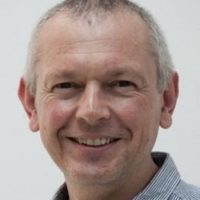Hewitt is developing new research that extends his doctorate study on art, politics, cultural policy and the avant-garde. In 2012 he completed a practice-led PhD at Chelsea School of Art. His thesis, entitled Art and Counter Publics in Third Way cultural policy, examined how under New Labour, the rhetoric of ‘Third Way’ governance informed cultural policy. The agenda for cultural policy therefore converged with priorities for economic and social policy, through the implementation of policies by Arts Council England and in the commissioning of publicly funded visual art. Hewitt’s research applied theories of the public sphere to the theories of art and participation – theories that articulate art in relation to its publics. While socially engaged artists have produced new modes of art practice that have shifted arts ontology, the research points to how Third Way cultural policy was quick to seize upon socially-engaged art for its own agenda. The artworks were a means to test the hypothesis and to find evidence by intervening in Third Way cultural policy with alternative ideas. Freee’s public spherian art proposes new modes of participative art to counter Third Way cultural policy – a ‘counter-public art’.
Post-doctoral work includes the book chapter “Deeper, Stronger, Faster and Longer”, in New Interactive Practices in Contemporary Art, edited by Kathryn Brown and published by I.B. Tauris, May 2014.
Hewitt is also developing new work with Freee art collective: “A properly political art must be twice political” for the exhibition Critical Machines, curated by Octavian Esanu, AUB Art Galleries, Beirut, Lebanon, 6 March-26 July 2014. This piece is a documented performance in central London, in which Hewitt and Freee members collaborate with invited guests to wear an oversized sandwich board that holds the artists’ text work. The project follows Freee’s earlier sloganeering and embodied artworks, such as those presented at the Istanbul Biennial, 2013 and the Liverpool Biennial, 2009. Freee are also developing new work for the forthcoming exhibition Part of the Game, Gallery nGbK, Berlin, August 2014.
Collaborative research
Hewitt has held collaborative research appointments and awards with UK and international scholars, including:
- From Audience to Publics – is the pre-condition of a public based on the opportunity to assemble? Post-doctoral project, Loughborough University. AHRC Cultural Engagement Fund, 2013.
- Manifesto on Art and Social Inclusion in Urban Communities. Primary Investigator, M Jordan, Loughborough University. Chief Investigators, Professor Loretta Lees, Kings College London; Dr Andrew Hewitt, University of Wolverhampton and Loughborough University; and Professor Frank Moulaert, KU Leuven, Belgium. Research Associates, Dr Constanza Parra, University of Groningen, Netherlands; Dr Catherine Thorn, University of Gothenburg; Dr Martin Zebracki, University of Utrecht; and Professor Ilse Helbrecht, Humboldt University, Berlin. AHRC European Network, 2013.
- Public Communications: Art, Technology and the Public Sphere. Primary Investigators, Dr Andrew Hewitt, Dr I Bruff, University of Manchester University and M. Jordan, School of Arts, Loughborough University. Working Group: Dr A Cameron, University of Leicester; Dr M Davies, University of Newcastle, Dr P Moore, University of Salford; Dave Beech, Chelsea School of Art and Design. Funded by EPSRC Bridging the Gaps Fund, 2012.
